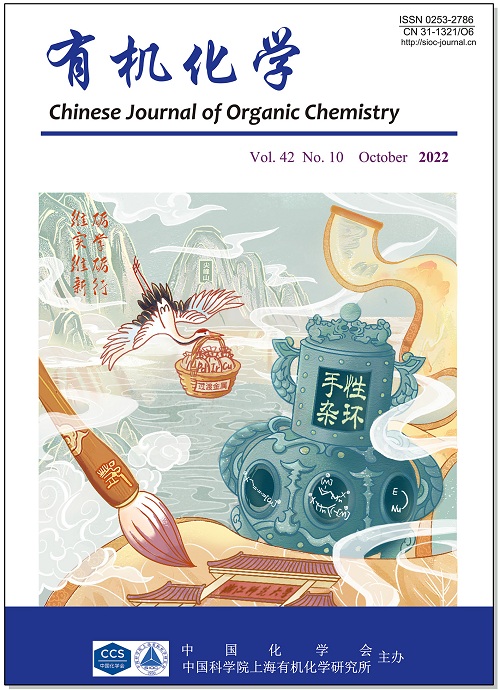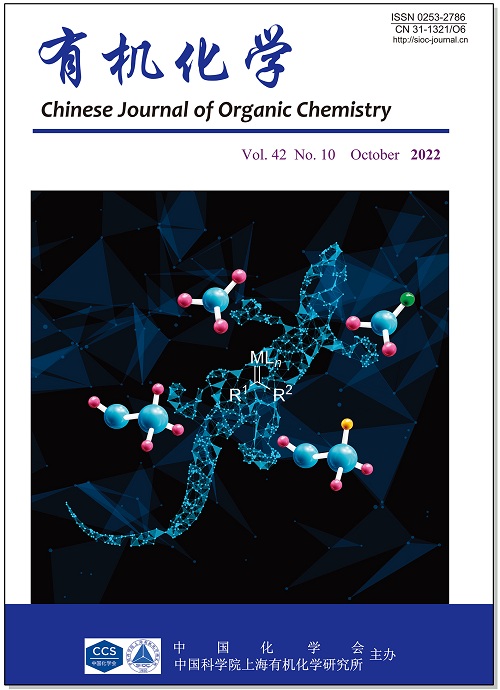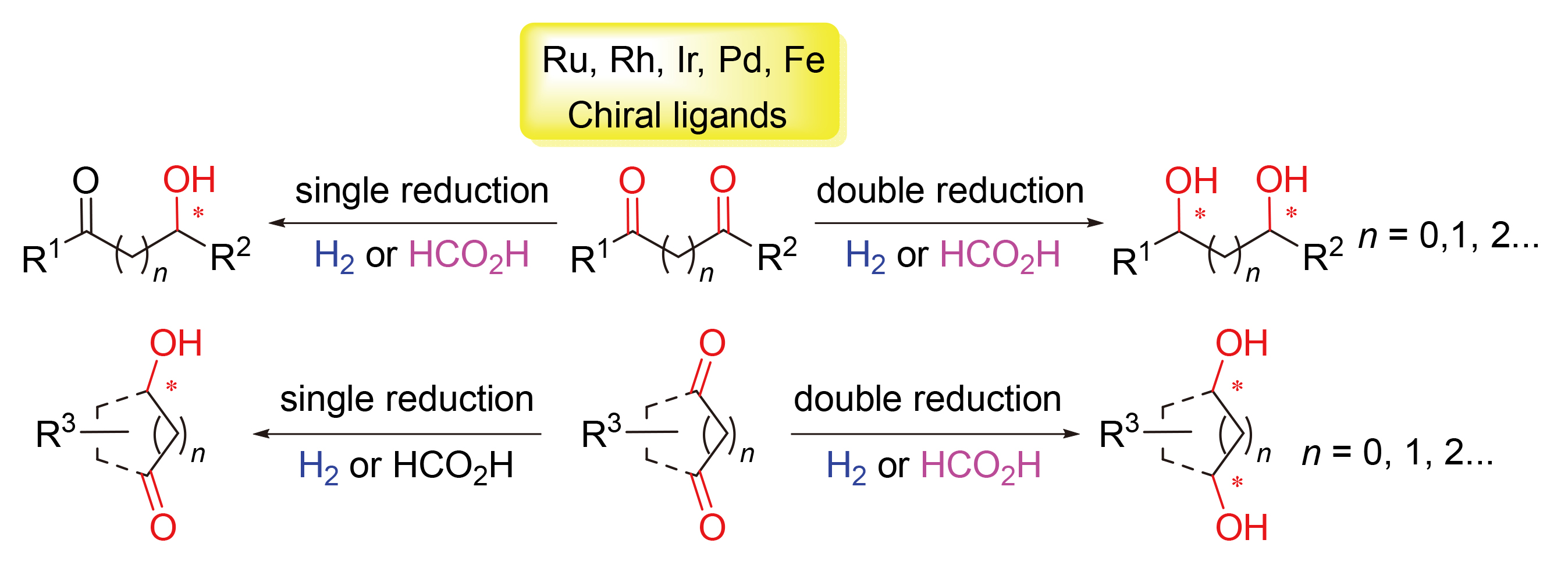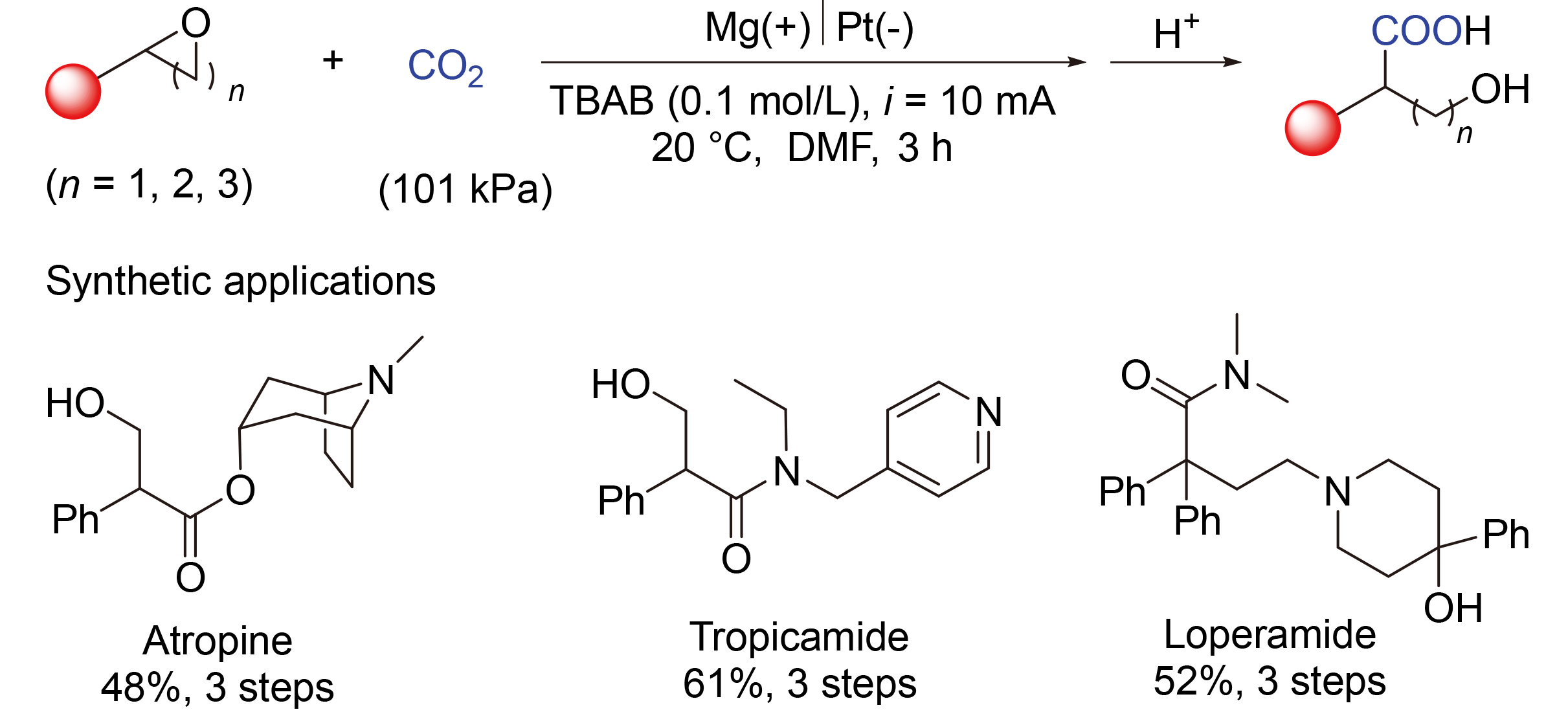-
-
 About the Cover:Replacement of noble-metals by earth-abundant and biocompatible first-row transition metals (manganese, iron, cobalt, nickel, etc.) for the development of new catalysts in asymmetric hydrogenation reactions is of great significance towards sustainable synthesis of chiral N-containing fine chemicals. An overview of earth- abundant metal catalyzed asymmetric hydrogenation of carbon-nitrogen unsaturated bonds categorized according to the types of central meals in catalysts is provided by Liu and Liu on page 3213.
About the Cover:Replacement of noble-metals by earth-abundant and biocompatible first-row transition metals (manganese, iron, cobalt, nickel, etc.) for the development of new catalysts in asymmetric hydrogenation reactions is of great significance towards sustainable synthesis of chiral N-containing fine chemicals. An overview of earth- abundant metal catalyzed asymmetric hydrogenation of carbon-nitrogen unsaturated bonds categorized according to the types of central meals in catalysts is provided by Liu and Liu on page 3213. -
 About the Cover:Heteroatom-dipole precursors designed based on transi-tion metal-catalyzed allyl or propargyl substitutions have been extensively studied in the past two decades. The research progress in transition metal-catalyzed asymmetric cyclizations with these precursors is summarized by Zhang, Chen, Wang, Sheng, Liu and Deng on page 3051.
About the Cover:Heteroatom-dipole precursors designed based on transi-tion metal-catalyzed allyl or propargyl substitutions have been extensively studied in the past two decades. The research progress in transition metal-catalyzed asymmetric cyclizations with these precursors is summarized by Zhang, Chen, Wang, Sheng, Liu and Deng on page 3051. -
 About the Cover:Metal carbenes have been widely applied in organic synthesis, and they can undergo a variety of chemical transformations due to their versatile reactivities. Ac-cording to the different reaction types of metal carbenes, the desymmetrization of C—H insertion reaction, Bu-chner reaction, Si—H insertion reaction and B—H in-sertion reaction involving metal carbenes is introduced by Teng, Han, Huang, and Ye on page 3295.
About the Cover:Metal carbenes have been widely applied in organic synthesis, and they can undergo a variety of chemical transformations due to their versatile reactivities. Ac-cording to the different reaction types of metal carbenes, the desymmetrization of C—H insertion reaction, Bu-chner reaction, Si—H insertion reaction and B—H in-sertion reaction involving metal carbenes is introduced by Teng, Han, Huang, and Ye on page 3295. -
 About the Cover:Compared with traditional redox-neutral alkene difunc-tionalization, the reductive difunctionalization of alkenes can introduce two different electrophiles to both sides of the carbon-carbon double bond, which has the advantages of mild reaction conditions, high functional group tolerance, and no need for pre-prepared organometallic reagents. The latest research progress in nickel- catalyzed reductive difunctionalization of alkenes is summarized by Ping, Song, and Kong on page 3302.
About the Cover:Compared with traditional redox-neutral alkene difunc-tionalization, the reductive difunctionalization of alkenes can introduce two different electrophiles to both sides of the carbon-carbon double bond, which has the advantages of mild reaction conditions, high functional group tolerance, and no need for pre-prepared organometallic reagents. The latest research progress in nickel- catalyzed reductive difunctionalization of alkenes is summarized by Ping, Song, and Kong on page 3302.
-
-
Current Issue
ACCOUNT
REVIEWS
REVIEWS
ARTICLES
HIGHLIGHTS



































